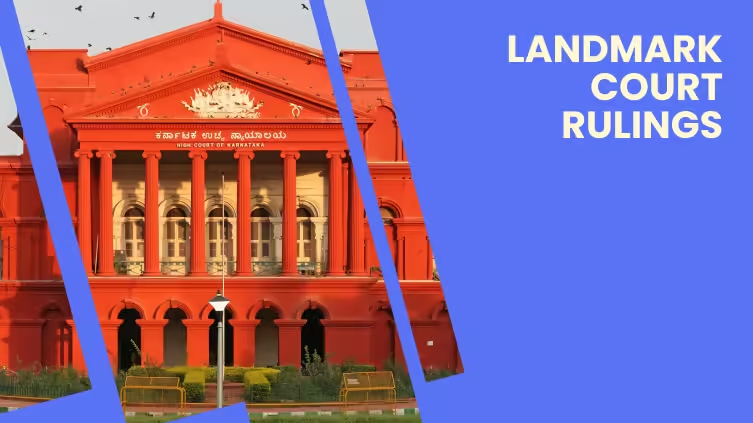One of the most on going discussions in India is whether poker is legal or not. Murky waters: Are your poker winnings subject to the gift tax? The arguing about whether Poker is a gambling sport or game of skill has been an ongoing controversy in India. It all comes down to knowing the differentiation between what is read as POKER and when does poker become LEGAL IN INDIA. Poker was controversially declared by some to be a game of skill, which could make it legislated in many areas. However, other proponents believe that poker is still associated with gambling and therefore may draw its statutory definition from the Public Gambling Act of 1867 – a central enactment providing criminal sanctions for owning or operating common gaming houses in India. Nevertheless, this act does not specifically mention poker writ large, which leaves room for interpretation and state-specific modifications. One needs to understand the nuances of this legislation and how courts have interpreted it over the years ultimately, in order to come fully understand about the legal standing of poker in India.
The Public Gambling Act, 1867 is the law that provides to make such gambling or bet unlawful by virtue of this act. The Gaming Act, which was implemented during the time of British colonization and is now outdated, nonetheless plays an important role in determining what forms of gambling became legal — including poker. But this act distinguishing between games of chance and game of skill is important to understand the legal position regarding playing poker. Poker is still a huge grey area with many claiming that it takes far more skill to play than games of pure chance. This is what makes the world of whether or not poker in India is legal so tricky. It could be exempted from the definition of gambling in the Public Gambling Act because if it is a contest there should be some novelty and more than anything luck; just like poker. However, that is not unanimous across states, and the reading also changes. Courts in many jurisdictions have since ruled that poker is a game of skill, making these interpretations good law. However, the scenario is quite complex as various states have brought in regulations and a few like Andhra Pradesh & Telangana expressly banned online poker.
The Public Gambling Act, 1867

The Public Gambling Act of 1867 is one of the most prominent laws related to gambling in India. It is, however, based long before poker became popular and does not specifically address whether poker can be legally played or operated in India. The law primarily deals with the execution of public gambling acts and keeping contiguous gaming houses. However, it creates a big loophole that hinges on the definition of games of skill vs. games of chance — a gap wide enough to drive… you know! This differentiation is crucial when talking about whether or not poker is legal in India. For years, courts in various states have sparred over the issue — while some decide that poker is a skill and not luck lawfully just as bridge. On the other hand, few argue that poker is a game based on chance and hence should be included in public gambling act and consequently must follow the rules internationally applicable for such games.
Many will argue that poker is a game of skill with good reason, considering the sheer amount of strategy involved in not only mastering your own skills but reading other players and calculating likelihoods to boot. This is what makes poker different than slot machines or roulette — where luck dominates the outcome. This however does not mean that the laws of India regarding poker are trivial and do not require any further understanding. While poker has been specifically legalised in states like Goa and Sikkim as a game of skill, it is mired?onto what constitutes ‘games v. sport’ wherever else across the country. The case of online poker is interesting as it falls directly between states like Andhra Pradesh and Telangana, where the game has been outlawed altogether through specific local amendments to the Public Gambling Act and most others that have allowed virtual card games.
Landmark Court Rulings on Poker in India

Court rulings from several high-courts have given the understanding to legal position of poker in India many interpretations. A decision that started the ball rolling was passed by the Karnataka High Court recognizing poker as a game of skill. The decision did mark a victory for poker players because it defined law regarding gambling to determine the legality of playing poker. Its status as a game of skill was central to poker’s legitimacy in Karnataka, while also parsing the definition of gambling under Indian law.
The Calcutta High Court essentially held poker to be a game of skill, and not chance. Rulings by High Courts in these states related to legal precedents, which create a domino effect on dozens of courtroom across the country and increase risk factor for operators` revenue. Such decisions made it clear that poker is not a game of pure luck, like roulette or slots games but rather some understanding for the rules, strategies and expertise are required. This crucial distinction allows the courts to rule that poker is legal in India. Hence, these court rulings are important to know how poker is viewed from one state to another and they underline that as per Indian law it cannot be illegal everywhere in India because there needs to be some specific condition which makes the game of skill a gambling.
The Supreme Court of India has, in a broader scope and defined only few elements for the cases akin to legality inside (and so far gender) video games websites. This meant that the apex court had by its judicial interpretation on any game where skill dominates over chance, these can’t be called Gambling. This led to the possibility of classifying poker as a game of skill, thus putting it beyond reach from being governed by the Public Gambling Act 1867. The court made it clear that poker, if recognised as a game of skill, will not be illegal in India. But the court did not make a broad ruling nationally concerning poker, deciding that in the case of Mr.ellidos game playing there was nothing about it to challenge its legality wehn conducted within certain parameters legislated by stat governments As a result, poker is in a gray area across India with some states opening their doors to the game while others remain more circumspect.
State-wise Legality of Poker

Poker laws also vary by state within the borders of India. Goa, Sikkim are the only states that have recognized poker as a game of skill and has made Poker legal. It is these states that legally operate poker rooms from which players can join a real-money, online game of poker. These first states have already passed laws to ensure online poker and other types of gambling are civil in these situations, meaning players will be able to play the games with nothing coming back on them.
States have been taking a less restrictive view in that regard. Poker, for instance, is a deemed game of skill in the states such as Karnataka and West Bengal by way of court rulings however there are still laws governing playing it at different places ad levels. While private games of poker are generally legal, public card rooms near Seattle have faced a lot of recent legal trouble. → The legal standing of poker in India is unclear, with the courts ruling differently on state issues related to gambling.
But online poker has been banned in some states like Andhra Pradesh and Telangana. While New Jersey, for instance, already hanno legal on-line poker put in place but credit card fears; Nevada has declined nearly all forms of Web gambling ad legalized only online casino-phone games that have been ordered are illegal. The confusion in the players ends up who wish to enjoy online poker but do not know if it is allowed or not. The legal status of poker in these states is far removed from the idea that it might be a game of skill — state governments instead have enforced stricter gambling laws. This means players in these regions should be well-acquainted with the laws if they do not want anything bad happening to them legally.
Online poker in India are very uncertain thing as from one side online gambling is not a national level regulation whereas the other has stated this field of work to be completely legal. Even now, some states are still determining whether online poker falls under gambling statute or is a game of skill. Players henceforth will have to make sure that they are in a legal position from the state perspective where they wish to play and should avoid concrete issues about liability if is applicable.
Factors Influencing the Legality of Poker

It is not as simple that the game of poker in India is legal or illegal. There are a lot of other things that determine if poker is legal in one state or another. This could be partly blamed on the presence of stakes or wagers in the game. Any game with money on the line can be labeled as gambling, unless it is proven to be a game of skill. Those states that believe poker is a game of chance will probably prohibit the real-money play, whereas others who feel just as strongly it’s strictly skill based would challenge this ruling.
The place and its format of the game are other critical factors. Games of poker in public may be subject to more regulation than games between one person or a group of persons. For instance, among other functions, the Public Gambling Act of 1867 targets public gambling as well as keeping and visiting a common gaming house. On the other hand, private poker games played in a home or private clubs might be less subject to legal scrutiny. The line between public and private games is often not clean, but it makes a considerable impact on whether poker in India falls within the scope of legal activities or operates outside its territory.
Also of note is the relative proportionality between skill and chance in poker games as a whole – that some are more from one side or another, for example most informed opinion probably has NLH at around 80/20 in favor of skill. While poker styles like Texas Hold’em remains viewed as a skill-based game by many, that may not be the case for other variants which are far more dependent on luck. Most courts in most states acknowledge the skill element of poker, but where to draw the line between a “game of chance” and a “game of skill” can be tricky.
Tips for Playing Poker Legally in India

To play poker legally in India, there are many important initiatives to be taken by the player. 1- The first important point is to choose well-known and registered online platforms. Online poker companies follow strict norms in the states where online poker is legal, for this reason it should be wise to stick only onto well established platforms which are not dubious. This way, the players will avoid getting into trouble with the law and get caught playing poker.
Another option is to play in legal poker rooms and tournaments, which will usually have a similar rule. We recommend only the best, meaning secure and legal US licensed poker rooms of which there are plenty. Players need to confirm whether the venues from which they intend to participate have licenses enabling them to operate and comply with local gambling legislation.
Knowing that then the many legal guidelines however state they are performing wholly genuine poker, you should likely choose if all by yourself. As we have seen that poker in India has not always been perfectly clear, its legality depends on various state laws and as such the players should be well aware of the local regulations. Such as knowing if the play online poker is allowed or playing in public places, for instance.
Responsible gaming practices are not any less significant. Poker is a great game and fun, but you should play responsibly with limits avoiding falling into gambling. If players follow these principles they can feel at ease playing poker within the good graces of their government.
Conclusion

Poker in India — Governace Update Though several states have recognized it as a game of ability, poker is still considered contentious in many regions or its legality online. While this outlook by The Supreme Court has opened the avenues for poker to be legalized in a few state, different laws continue to differ from one state century. The best way for poker fans to enjoy a game in India, is by staying abreast of domestic laws surrounding the amateur variant and playing responsibly.
